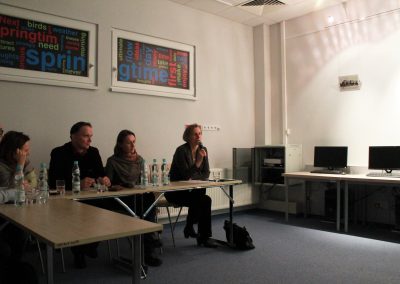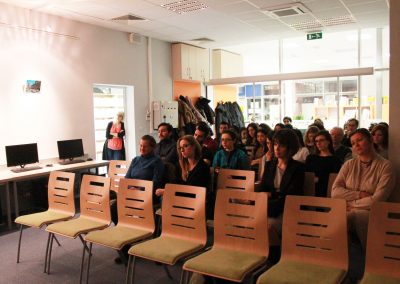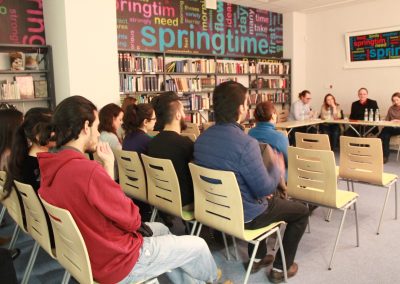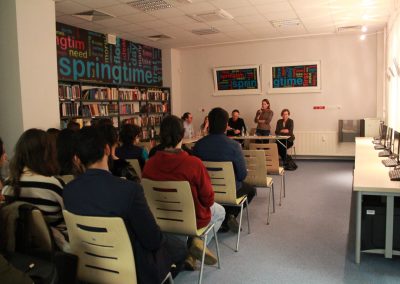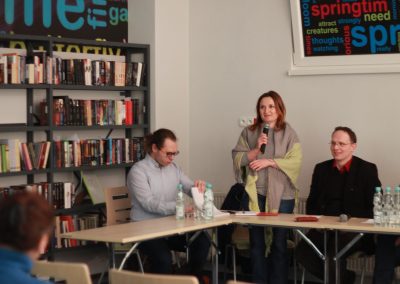On Wednesday we met in the Municipal Library Fil. 4 to participate in the debate entitled Gender ideology(ies): Man and woman – different by nature, inequal by society? We tried to find the answer to this question with our four guests: sociologists Borys Cymbrowski and Anna Czerner, philologist Katarzyna Molek-Kozakowska and biologist Elżbieta Pogoda.
We were aware that for most people the term gender is unfamiliar or even unfriendly, especially when someone is not a philologist or a social researcher, so we started with the basic questions: what gender is, how it exists in our respective fields of studies, and if there exists gender ideology. We can say that gender in general is about social consequences of being men, women or the others, because in the opinion of Elżbieta Pogoda even from a biological point of view there are more than only two sexes. And there is no evidence that one sex has an advantage over another.
In Polish media we encounter some false beliefs about the meaning of the word “gender”. But as Borys Cymbrowski mentioned it is a problem of confusion of nature with culture, because in the Polish language we have only one word (płeć) for gender and for sex. So some commentators confuse biological meaning with the cultural one. They accuse gender scholars of promoting a dangerous ideology which tries to convince people to choose their sex. As Anna Czerner said, the truth is that in the social sciences gender was a neutral category to analyse the relations between people in society, but unfortunately some institutions and politicians took one of the least popular topics in gender studies and used it as a basis to create and apply gender ideology as a political tool.
After that we focused mostly on language aspects within gender issues. Katarzyna Molek-Kozakowska indicated that for her it was easier to introduce herself in English than in Polish, because in Polish most names of academic professions have only a masculine gender, or even if it has a female gender, masculine forms sound more serious and more prestigious. But language is not a constant phenomenon – it is changing all the time. Twenty years ago we considered some female forms of words as strange, but today we take them for granted. We concluded that it is important to include more women-related forms to language, and it is one of the main catalysts of social changes in the public sphere.
We are really glad we could discuss it with you and with the citizens of Opole. We would like to thank you all for your presence and participation, and we hope to see you soon during another discussion. The aim of the whole debate was to clarify a little the problem of gender, but two hours is a short time when you are discussing such an important and complicated topic – so we treat this meeting only as a start. The debate is still open.
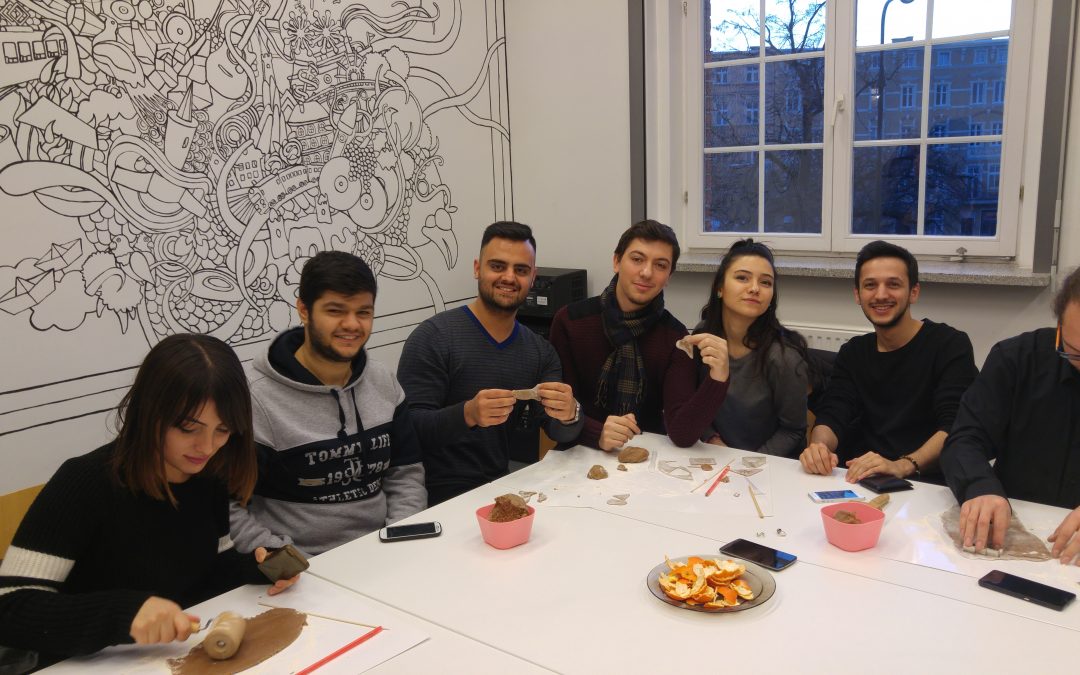
International Weekends
The programme is co-financed by the European Social Fund in the framework of Knowledge Education Development Operational Programme, non-competition project Increasing competencies of academic staff and institutions’ potential to receive people from abroad – Welcome...
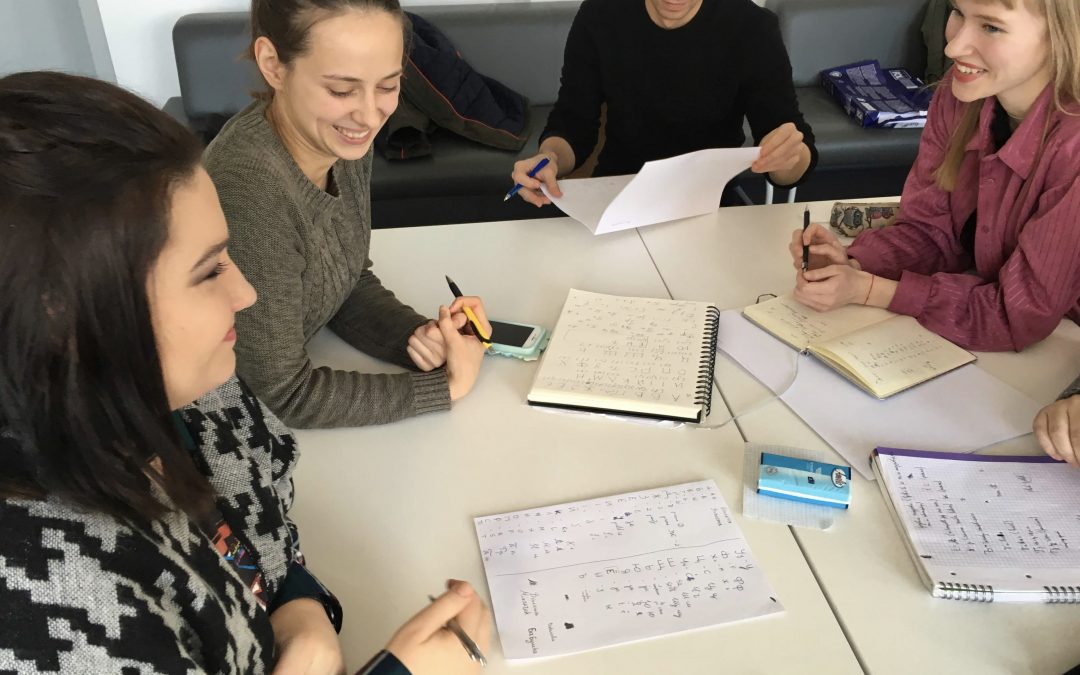
English Cambridge exams
Check out the deadlines for registration for English language certificates FCE (B2), CAE (C1), PROFICIENCY (C2). Cambridge exams First (FCE): 655 PLN Advanced (CAE): 680 PLN Proficiency (CPE): 735 PLN Business Vantage (BEC Vantage): 680 PLN Business Higher: 745 PLN ...
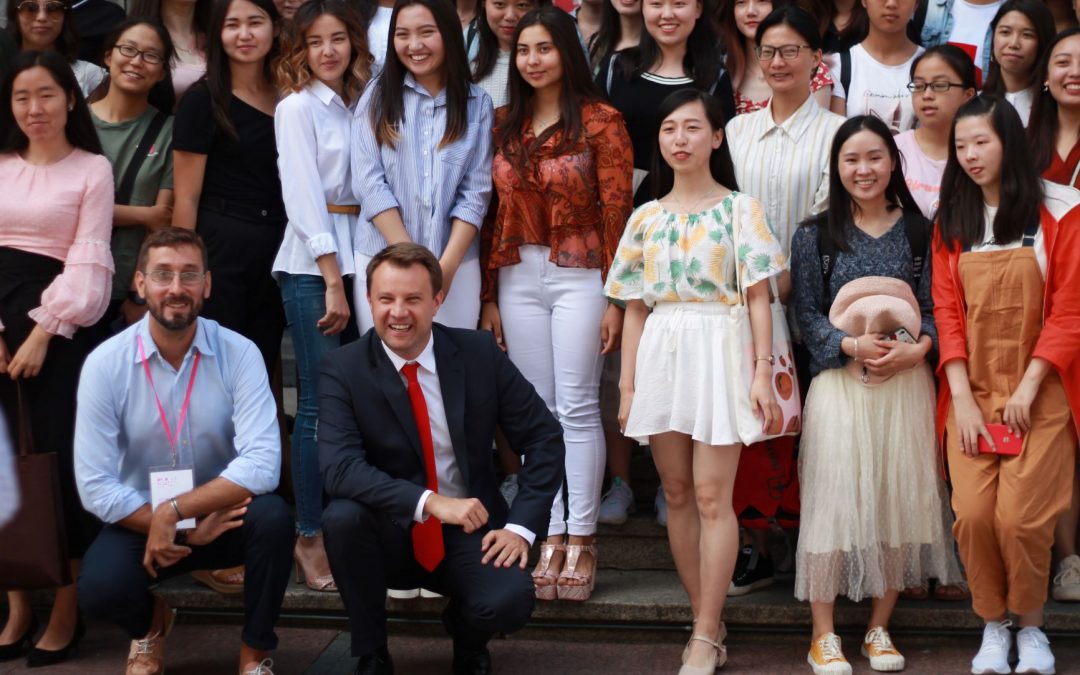
Scholarship of the Mayor of the City of Opole
Hurry up! Tomorrow (Friday, Jan 31) is the last day to apply for the Scholarship of the Mayor of the City of Opole! The Mayor of the City of Opole announced a call for applications for the scholarship aimed at the full-time students of the universities located in...
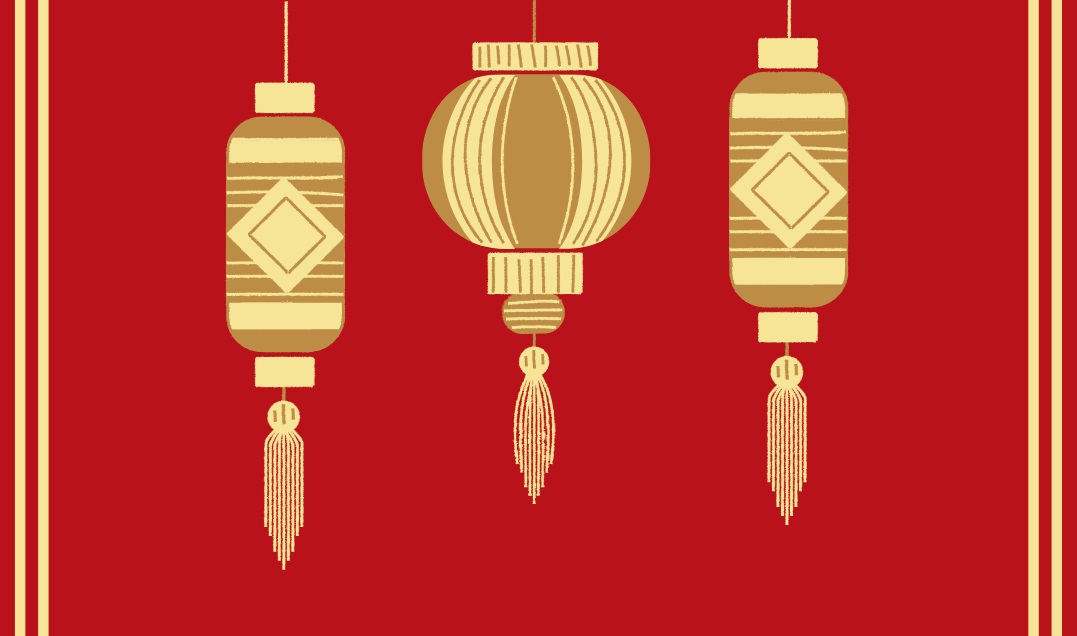
Chinese New Year
Our Chinese students and UO Student Council invite all of you to Chinese New Year event! You can celebrate beginning of the Year of the Rat in an international environment, discover the traditions that are part of this most important holiday in China and taste...

Forum Theatre
What an evening! Another performance of the Forum Theatre, prepared by our Erasmus students was on Tuesday, January 21 st, another experience of social justice in practice. The performance, focused on the 3 situations of oppression, required from all actors and...

International Alumni Club
Have you graduated from the University of Opole, gone to work abroad and stayed there for good? Or are you one of the UO foreign graduates? Contact your Alma Mater, share your story and become the UO ambassador! “International Alumni Club” programme has started. We...
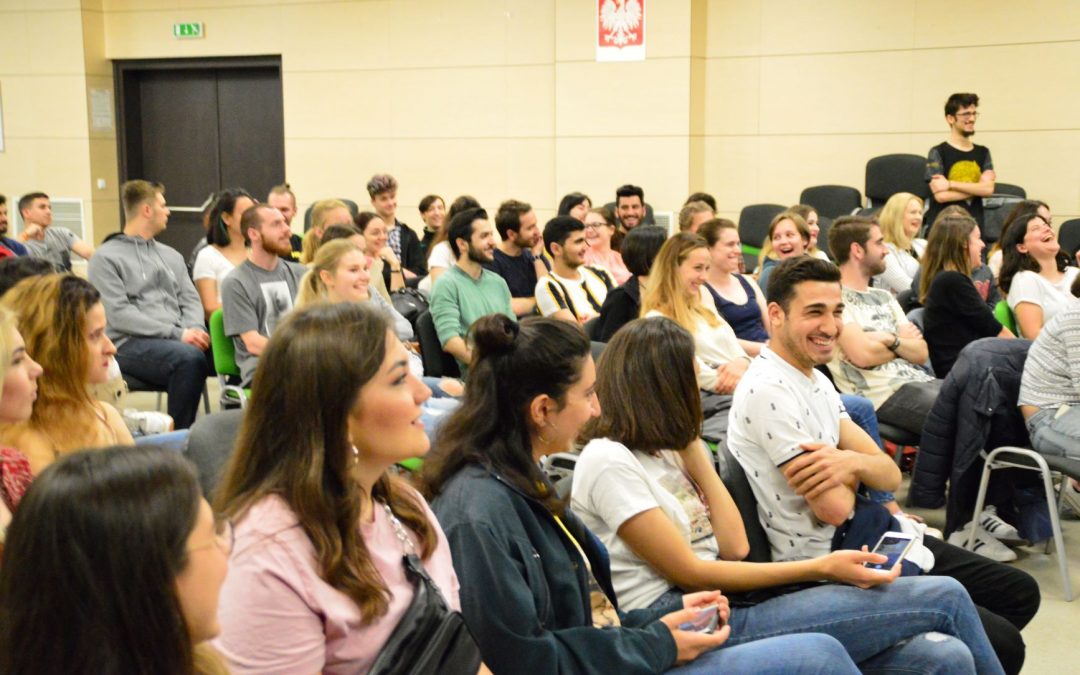
Forum Theatre
UO international students invite you all to Forum Theatre. It will take place on Tuesday, 21 Jan, at 6:30 pm in the Student Culture Centre. More News
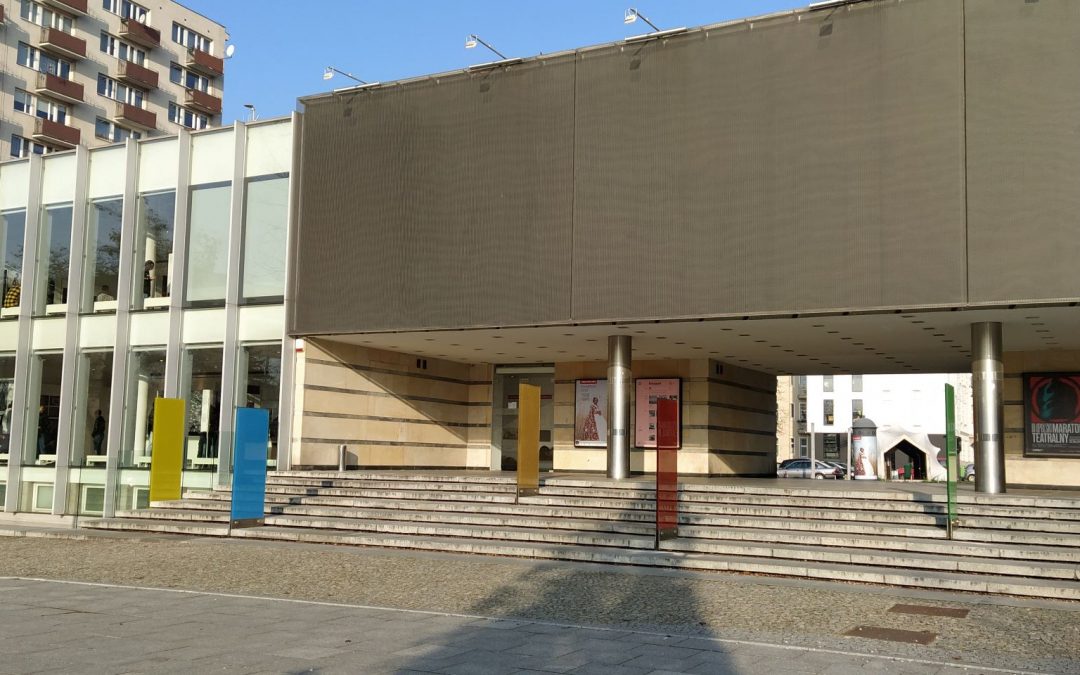
Exhibition “Fale”
We invite you all to Contemporary Art Gallery (pl. Teatralny 12). A new exhibition “Fale” by Paulina Ptaszynska starts on 17 Jan. Paulina Ptaszyńska is a lecturer at the Faculty of Art. She is also a PhD student at the Academy of Fine Arts and Design in Wrocław...
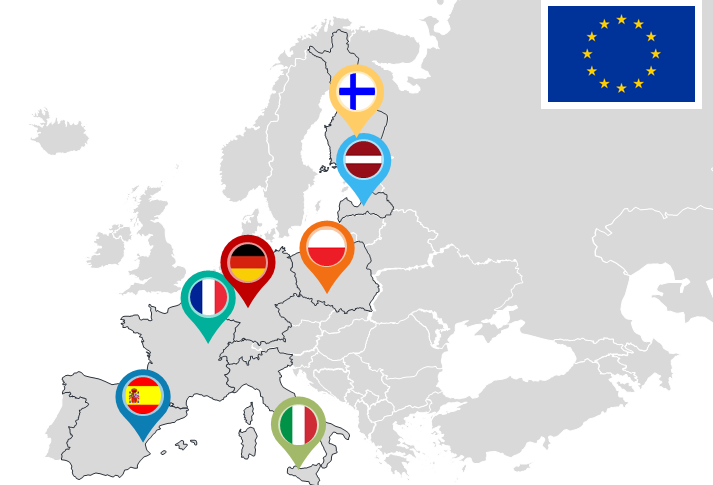
Short-term students mobilities within FORTHEM Alliance
FORTHEM aims to open up new possibilities for students to travel and study in these different universities. Between 15th January and 15th February, students from all of the alliance universities are invited to apply for short-term mobility in 2020. Two new...
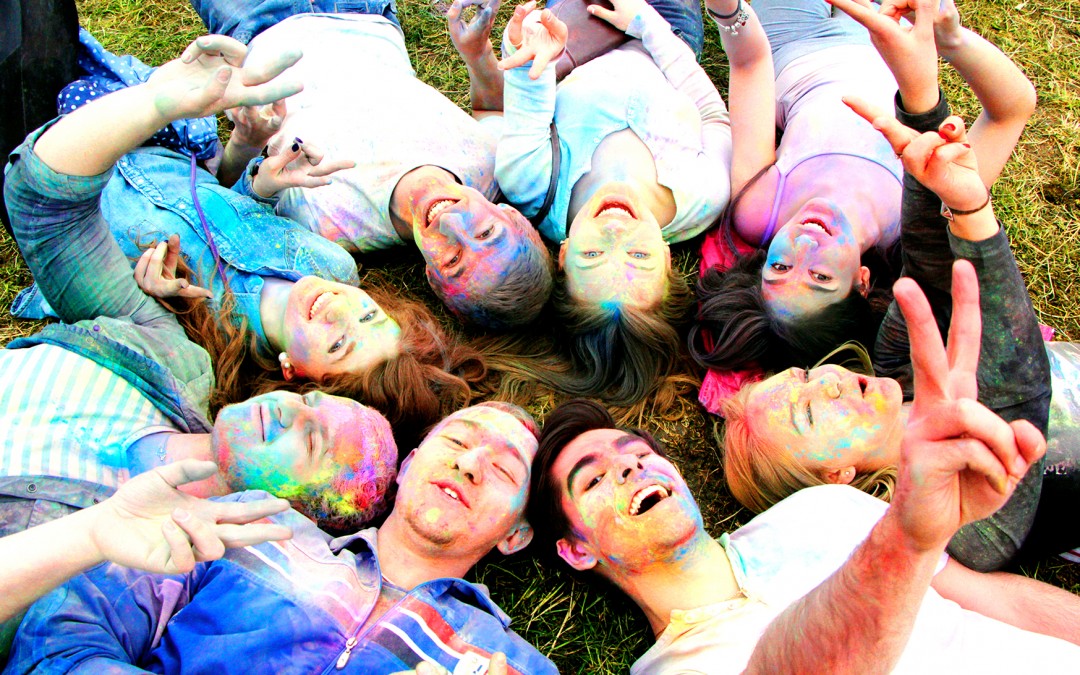
OHS training
The obligatory Occupational Health and Safety Training for all English-speaking Year 1 students will be held on 18 January 2020, at 8:15, Collegium Civitas, room 104. The training is necessary to pass the first semester, remember to put your name on the list!...
